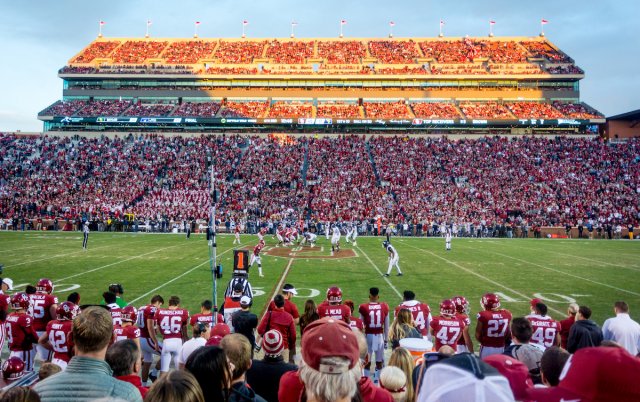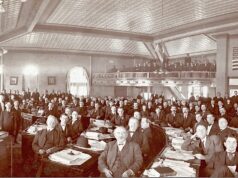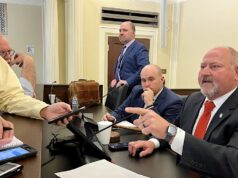
Whenever Oklahoma’s governor, Legislature and 30-plus tribal nations move beyond their talking points and truly negotiate the future of gambling in this state, the legalization of sports betting will be on most everyone’s radar.
Authorized by a May 2018 U.S. Supreme Court ruling, sports betting has been formally legalized by a dozen states so far, 10 of whom report statistics. In the past 17 months, those 10 states have reported more than $13 billion in wagers, with $947 million in revenue for sportsbook enterprises and about $118 million in taxes or fees collected by state and local jurisdictions. Those figures do not include traditionally offshore and off-book sports betting, which still feature more than $100 billion in annual wagers.
In other words, sports betting will mean big money if legalized in Oklahoma, something large tribal casino operators want, even if they proclaim it less loudly than they did two years ago. Sports betting would have to be authorized by the Oklahoma Legislature, regardless of the ongoing gaming compact dispute between Gov. Kevin Stitt and tribal nations.
But as those parties ponder the potential of Oklahoma sports betting, they would be wise to keep two things in mind. First, there would be no collegiate sporting events on which to wager without college athletes themselves. Second, if Oklahoma’s actual athletes playing collegiate games are the only people who receive nothing new when sports betting is legalized, it would be a glaring injustice.
Put simply, if Oklahoma is going to legalize sports betting, the issue should be politically paired with another changing topic: whether college athletes can hire agents and receive compensation for commercial use of their name, image or likeness in advertising or endorsement deals.
Oklahoma could join states pushing NCAA to change
If the language above on agents and endorsement compensation sounds familiar, it should. In September, California’s governor signed a bipartisan bill prohibiting his state’s colleges and universities from punishing athletes who hire agents or sign endorsement agreements. With an effective date of 2023, the new law has caveats and restrictions, but it has functionally changed the American political landscape on the topic of college athlete reimbursement.
From NPR on Oct. 29:
Politicians in Illinois, New York, Florida and other states have introduced bills allowing endorsement deals for college athletes. And days after the California bill was signed, national politicians signaled they would push for something similar in Congress.
Further, the NCAA itself — an oft-maligned governing body for collegiate athletics — has suddenly abandoned its opposition to college athlete endorsement reimbursements. From the same NPR article:
In a surprise move, the NCAA says it intends to allow college athletes to earn compensation — but it says it’s only starting to work out the details of how that would take place. The organization’s board of governors said Tuesday that it had voted unanimously to permit student-athletes to benefit from the use of their name, image and likeness.
Such a shift in political posturing should be smelled for what it is by veteran politicians: a recognition of overwhelming public sentiment that is far from an overt promise to make swift change. With the snail-like nature of Congress and the NCAA’s cynical history, states should continue pushing the issue in their legislatures.
As a result, Oklahoma legislators should consider crafting their own proposal in a state where “labor conquers all.” Local lawmakers can support young men and women at the top of their games who are currently forbidden from capitalizing on skill and notoriety widely mined for profit by higher education institutions, media and car dealerships.
Should tribal casinos, gambling technology companies and the state of Oklahoma’s general revenue fund join the game by legalizing sports betting, inaction on the topic of college athletes’ personal licensing rights would be a shame.
With risk of grave personal injury so high in the NCAA’s most profitable sport, lawmakers should consider the free-market rights of college athletes when tribal lobbyists or the governor’s office ask to legalize sports betting in Oklahoma.





















